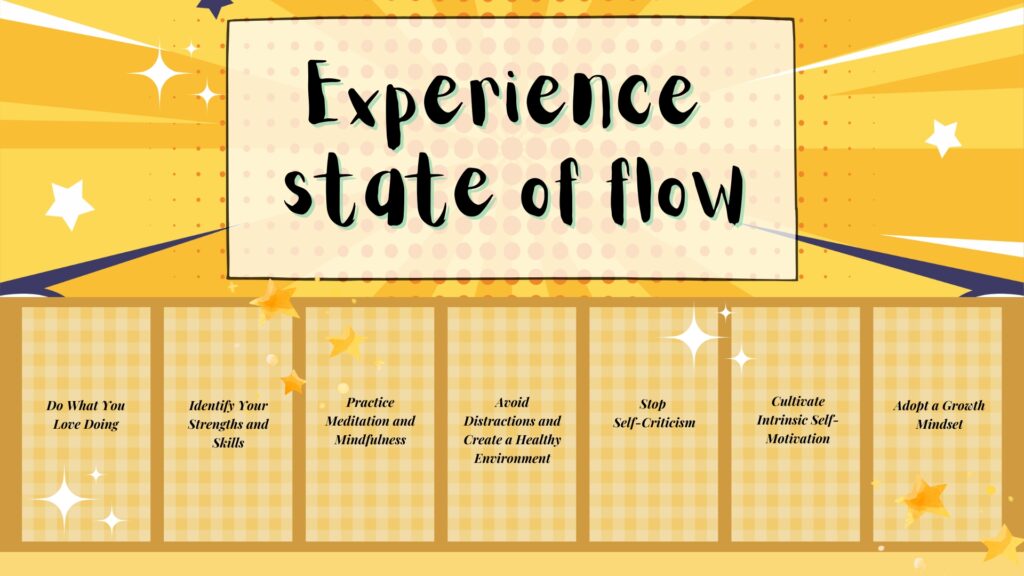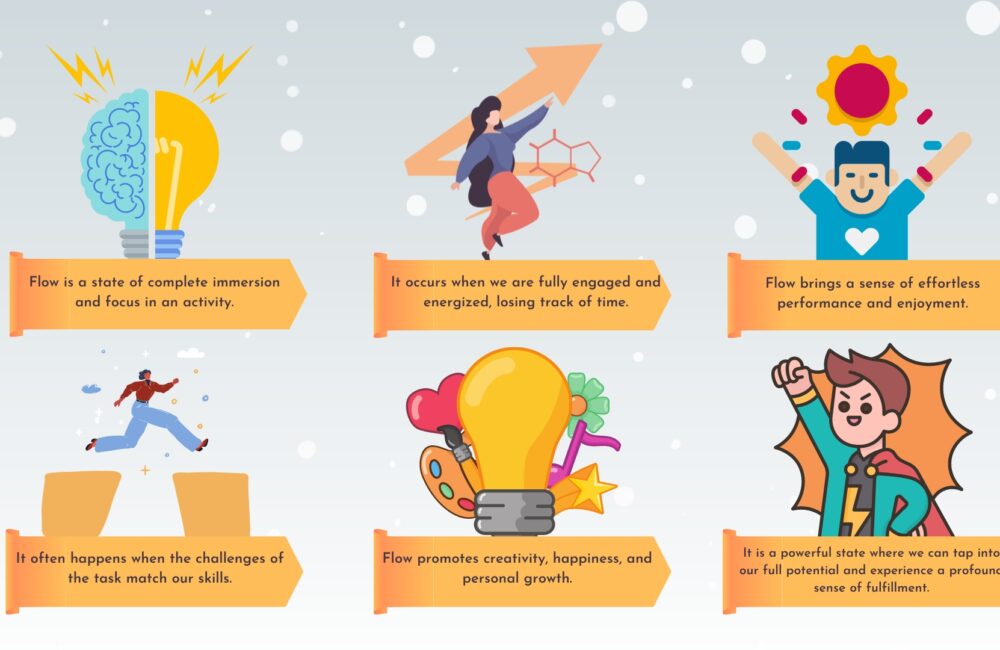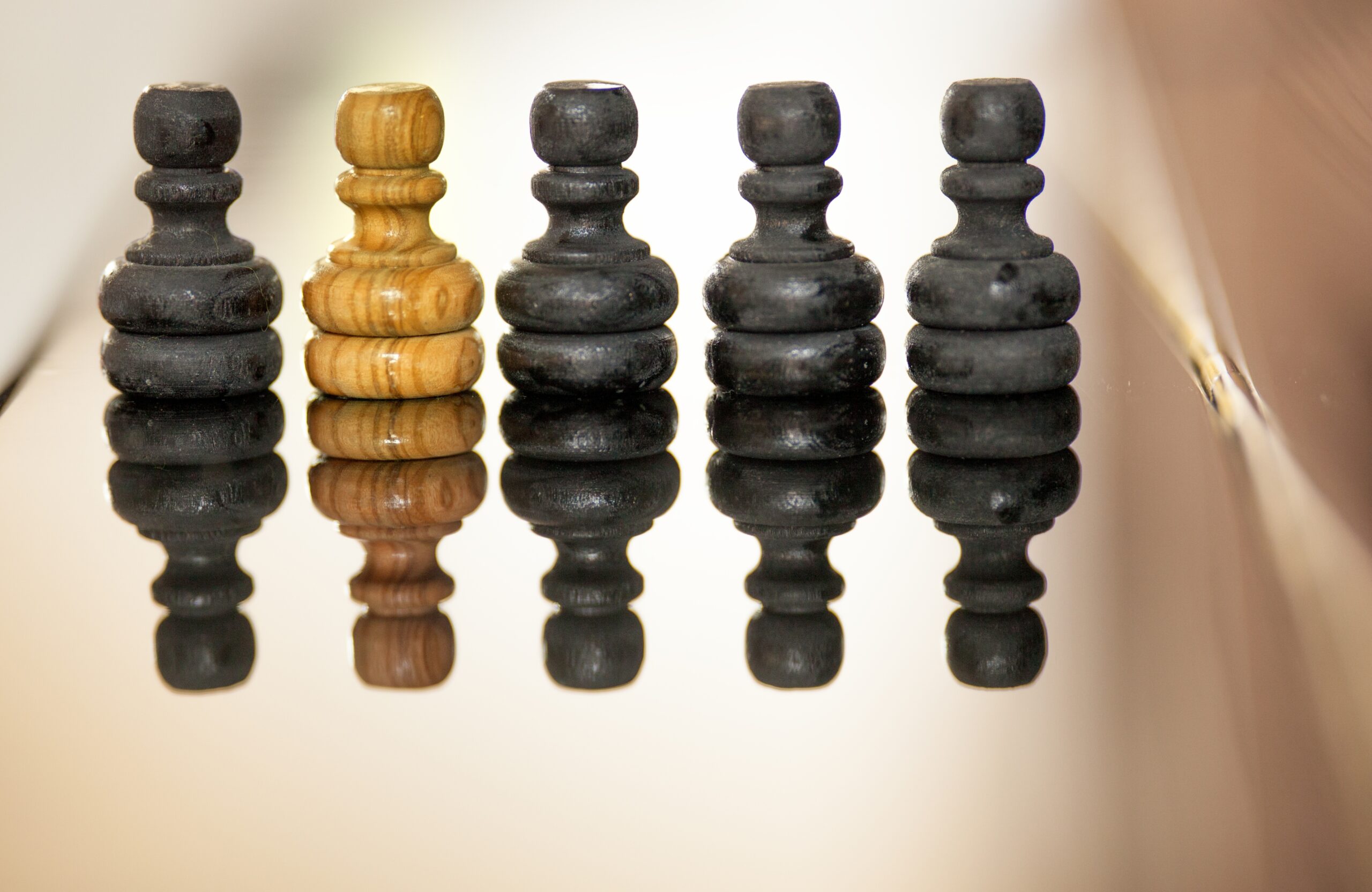Flow in positive psychology is a pleasurable and immersive state of mind. It is one of life’s most fulfilling experiences, keeping us engrossed in the present and enhancing our creativity, productivity, and happiness. Imagine you are engaged in a painting or creating a reel for your social media channel. You are entirely absorbed in the process, experiencing ideas effortlessly. Your entire focus is so centered on the creative process that you lose track of time. You don’t feel hungry; you only care about creating and editing what you might think is a brilliant product of your intellect. That is flow, and when it is fulfilling and successful, it can make you immensely content and happy.
Examples of Flow
Flow is usually experienced in the creative process, but sportspeople and employees experience it too. For example, if you are an athlete running a race; your entire mental and physical faculties are involved making you mindful of every move you make. You forget your tiredness, pain, and anxiety; all you can think of is winning the race. An animator might spend hours attempting to make an animation sequence perfect. While hunting for ideas, an interior designer might get immersed in “flow.” Similarly, a lawyer might choose to absorb himself in research to get ideas on fighting a case.
Understanding Flow, What Is It?
Flow or “in the being” was first studied in the seventies by Psychologist Mihály Csíkszentmihályi. He called it the “secret to happiness.” Mihaly Csikszentmihalyi asks, “What makes a life worth living?” Noting that money cannot make us happy, he researched those who found pleasure and lasting satisfaction in activities that bring about a ” flow state.” As a state of optimal experience, flow can be incorporated into everyday life and is characterized by the immense joy that makes a life worth living. In an interview with Wired Magazine, Csikszentmihalyi said:
“…being completely involved in an activity for its own sake. The ego falls away. Time flies. Every action, movement, and thought follows inevitably from the previous one, like playing jazz. Your whole being is involved, and you’re using your skills to the utmost.”
Flow and the Brain
According to research, there are marked changes in brain activity when flow occurs. There are two theories in psychology explain what flow does to the brain.
- Transient hypofrontality hypothesis: In this theory, a flow state is associated with a decrease in activity in the brain’s prefrontal cortex. The prefrontal cortex (PFC) is responsible for problem-solving, decision-making, emotional regulation, social skills, and personality. It is essential for higher cognitive functions like self-consciousness and memory. Some people feel detached from self-consciousness and a sense of time because there could be reduced activity in the PFC.
- Synchronization theory: This alternate view says that being in a state of flow could increase activity in the frontal cortex, thus contributing to increased higher thinking. Moreover, the flow state improves communication between various regions of the brain.
Some research states that dopamine increases in the brain when people experience a flow state. Dopamine is a neurotransmitter made by the body and associated with pleasure and motivation. In 2021, one study suggested that various flow experiences could be influenced by the brain’s locus coeruleus-norepinephrine system (LC-NE). This system involves multiple neurobiological processes, including regulating sleep-wake cycles, attention spans, and how our body engages or disengages from tasks in response to stimuli.
Characteristics of Flow State
According to Csíkszentmihályi, there are ten characteristics of the flow experience. However, an individual doesn’t need to experience them all.
- Intense focus and deep absorption in a task
- Concentration and complete attention
- Clear goals in mind though challenging, are attainable
- Losing track of time, hours seem like minutes
- Loss of self-consciousness and self-awareness
- Complete sense of control over the task and results
- Activity is rewarding and pleasurable
- Constant feedback
- A balance achieved between skills and task
- Physical needs take a backseat
Benefits of Flow State
The Flow experience has been found to have several benefits that impact an individual’s mental health and well-being. It can do much to improve one’s overall performance.
- Enhanced Happiness and Emotional Wellness: Psychological flow increases positivity and a sense of fulfillment. It contributes towards satisfaction, happiness, and contentment in life.
- Emotional Regulation: Increased states of flow improve emotional maturity, helping people to develop skills and efficiently control their emotions.
- Motivation, Engagement, and Productivity: Flow can motivate you to give a task your best shot with complete effort. This results in the feeling of internal reward, and improved performance, and creativity. Flow can also improve problem-solving skills and help your brain think outside the box.
- Skill Development: Since the flow is associated with mastery over skills, it prompts you to seek new challenges to maintain the flow state. Frequent flow experiences can help you increase your skill set over time.
- Reduces Stress and Anxiety: Being in a state of flow in work you like is therapeutic. Immersing yourself in activity can trigger happy hormones and reduce stress and anxiety.
How Can You Experience This Amazing State of Flow?
Achieving a state of flow requires the right conditions for total engagement. Here are some practical ways how to achieve flow.

1. Do What You Love Doing
Create a specific and attainable objective. It should be something you genuinely want to accomplish, a goal that energizes you. It should be something you can achieve. Do not construct an impossible plan for yourself, and avoid doing things you don’t like. Specific goals provide a clear sense of direction, thus making it easier to achieve flow.
2. Identify Your Strengths and Skills
Indulge in activities you know you are good at. When you immerse yourself in an action you possess the skills for, you are more likely to achieve a flow state.
3. Practice Meditation and Mindfulness
Meditation and mindfulness will cultivate your mind into entering a state of flow faster. Mindfulness increases a heightened awareness of the present, like the flow experience. One study found how practicing mindfulness helped athletes enter a state of flow for improved performance.
4. Avoid Distractions and Create a Healthy Environment.
In a positive environment, it is easier to experience flow. Remove distractions and create an environment that helps you focus better. Wearing noise-canceling headphones, putting away your phone, or turning off your television might help to increase concentration. If you enjoy a natural environment, sitting in your garden or a place that allows you to be close to nature will start your creative juices flowing.
5. Stop Self-Criticism
It is normal to feel you may not be exceptional at something. To enter the flow state, you must let go of your inner critic, which might be holding you back! Stop thinking that your writing is awful. Stop doubting your color choices. Stop believing you may not be strong enough to overcome an obstacle. Stop debating your abilities. Instead, remind yourself how you can achieve things to overcome your negative self-talk. Learn to have more faith in yourself, and you will eventually be able to let yourself shine through in the flow.
6. Cultivate Intrinsic Self-Motivation
Immerse yourself in activities that you find satisfying, enjoyable, and rewarding. When we are motivated to do something and genuinely interested in it, this helps initiate flow naturally.
7. Adopt a Growth Mindset
Start indulging in activities that challenge your skills. This does not mean you must attempt something beyond your skill, but something out of your comfort zone. Try to learn new things, which increases your creativity. A growth mindset helps people adopt a more enthusiastic approach to tasks, increasing experience flow.
Conclusion
Flow is a state of mind that helps people achieve optimal engagement in activity. It is a dynamic and ever-changing state which increases with advancing skills. Understanding flow and implementing the techniques to achieve it will help you cultivate a positive attitude toward life. Incorporating flow in your work, your hobbies, and whatever you’re passionate about will make you happier.
















